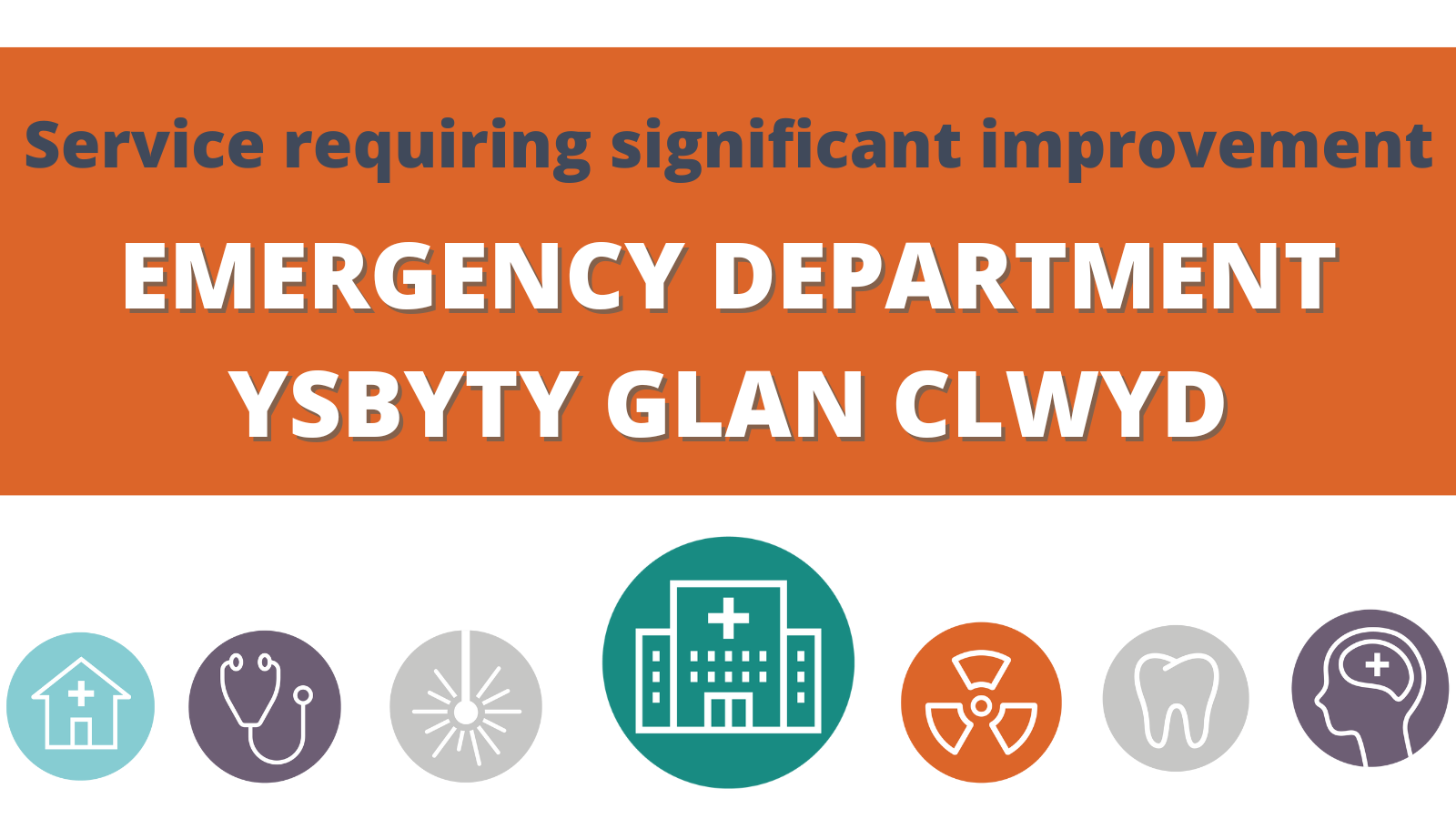HIW report identifies ‘risks to patients’ and ‘significant concerns’ at Ysbyty Glan Clwyd’s Emergency Department in Rhyl
Healthcare Inspectorate Wales (HIW) has issued a report (8th August 2022) highlighting the need for urgent improvement in the emergency department (ED) at Ysbyty Glan Clwyd in Rhyl.

A HIW inspection identified that Betsi Cadwaladr University Health Board did not have adequate arrangements in place within the department to support the delivery of safe healthcare.
HIW completed an unannounced inspection of the emergency department on three consecutive days in May this year. This inspection was undertaken to follow up on the significant concerns HIW identified during a previous quality check undertaken in March 2022.
Our inspectors concluded that there was a lack of improvement to an acceptable standard in relation to the concerns identified in March 2022. As a result, HIW designated the emergency department in Ysbyty Glan Clwyd as a Service Requiring Significant Improvement (SRSI) on 9 May 2022. Furthermore, the May inspection identified several additional areas of concern relating to patient safety.
The onsite inspection in May highlighted the emergency department was experiencing a period of unrelenting demand on its services. HIW noted the highly pressured environment for staff, who were working above and beyond in challenging conditions. However, HIW found that the health board was not fully compliant with many of the Health and Care Standards, and highlighted significant areas of concern, which could present an immediate risk to the safety of patients.
These concerns were around the effectiveness of arrangements for assessing, monitoring, observing, and escalating unwell or deteriorating patients. HIW also noted that the quality of the nursing documentation fell far short of the required standard and found evidence of poor management of health and safety risks, such as unsecure access and exit from the paediatric area. Infection prevention and control procedures were also insufficient.
As a consequence, HIW was not assured that the processes and systems in place were sufficient to ensure that patients consistently received an acceptable standard of timely, safe and effective care.
HIW found that the quality of management and leadership was not sufficiently focused and robust and was concerned to find that the arrangements for oversight had not enabled the health board to pick up on the issues identified by HIW during the inspection.
HIW highlighted areas which required immediate action be taken in order to keep patients safe. HIW has urged the health board to carefully consider all findings from this review and undertake action to reduce the potential for significant harm to patients and to embed all improvements into practice.
The SRSI designation currently applied to the emergency department enables us to plan and deliver future activities necessary to gain assurance about the quality and safety of care in that service.
Chief Executive of HIW, Alun Jones said:
The findings within this report are extremely concerning, and we have urged the health board to take immediate action to protect patients from the risks identified. The designation has been made to strengthen and accelerate the measures taken to drive timely improvements within the service. We will be working with the health board to ensure robust improvements are made in a timely manner, and will consider the timing of any follow up activity, which will need to be evidenced.